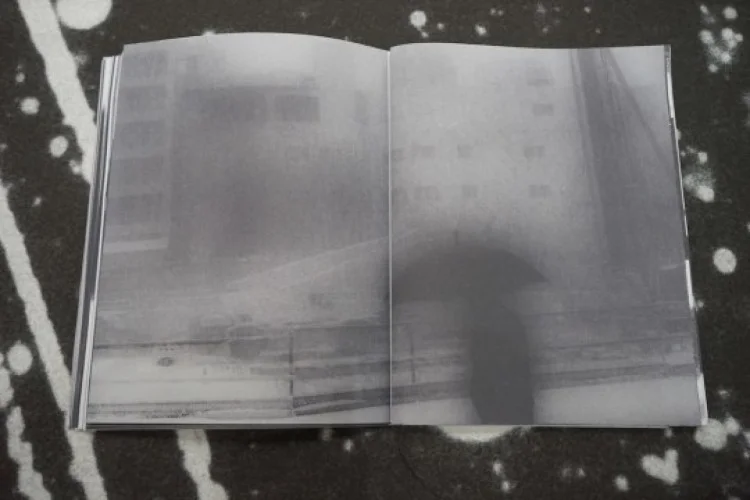Photobook Review: Snowflake Dog Man - Hajime Kimura
Photobook Review: Snowflake Dog Man - Hajime Kimura
Review by Pippa Milne
Memories are never truly set. Each time we remember anything, the process of remembering is slightly different and the memory is altered. Socrates is credited with saying that memories are akin to wax; liable to melt, extrude, morph over time.
Hajime Kimura’s book, Snowflake Dog Man, which doesn’t have a start or an end—it is actually two books in one box, each in their own spot, neither clearly meant to precede the other—is an embodiment of both memory and the act of remembering.
It is not a formal investigation of memory. Rather, in its snow blinded aesthetic; its paper that is warm, soft, almost melty between your fingers; in its untrimmed edges; in the knowledge that the volume in your hands was made by the photographer himself, it is a reflexive and personal exercise of the quiet grief that comes with memory.
Kimura sets out the premise for the book far better than I really could. In various quotes he describes his father, and his father’s dog, who, after his father is gone, takes Kimura on the same walks that he used to go on with Kimura’s father. Through their walks, and through a photo-album in his father’s house, the photographer starts to re-know his father, or at least work out what he didn’t know.
“Whenever I walk the dog, I have flashes of memories of my father by speaking to the people with whom he used to chat. Much to my surprise, that was the side of my father that I never knew.”
Photographs and memory are, of course, inherently bound together. Photographs link to the moment, or place, or person that they depict, even after their demise. They are markers and memorials, often trusted beyond their capacity, altering our recollection of what really went on, fabricating what feel like memories. I get the feeling, as I revisit this book over and over, that the act of laying down these memories acknowledges that these images construct an imperfect and incomplete portrait. They are what Kimura can peg together through a set of imperfect tools: a dog, a photo album and conversations.
There is an insert within the larger of the two books, bound with some black thread. Images from a family album sit on absorbent, quasi-transparent paper. Their age is legible in their degraded appearance, their analogue borders and in the fashions that they showcase. They range from group shots in tourist spots, to I.D. pictures and grainy snaps of children playing. Here, amongst the pages of snow and fog, they are unbuckled from their former jobs as personal mementos, accompanied by the retelling of anecdotes. We can guess at who these people are, but they slip in and out of focus in an apposite manner.
There are memories prompted by looking at a photograph, and those that live free in our minds. Snowflake Dog Man seems to echo both of these experiences of remembering. We can only go so far in the process of making record of something after it is gone.
Pippa Milne is the Curator at the Centre for Contemporary Photography, Melbourne. Her recent exhibitions at CCP include: An Unorthodox Flow of Images (2017), curated with Naomi Cass; CCP Declares: On the Social Contract (2016); and For Future Reference (2015). Pippa teaches at Melbourne University and Photography Studies College, Melbourne, and writes for art publications in Australia and New Zealand.






In the book, there are few moments of respite with an empty page featuring either an asterisk or text from the photographer himself. The former signifies if nothing else…nothingness, while the latter serves an effect similar to the Stephen Shore’s The Nature of Photographs not only in terms of language but as a primer.